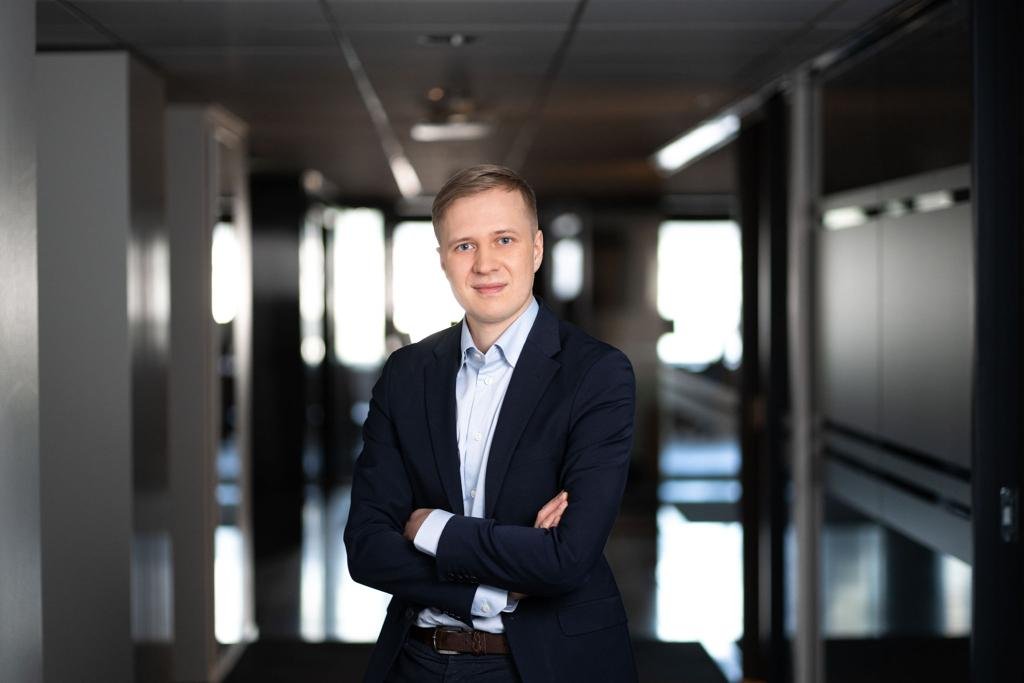Aalto Private Equity Club’s 3+1 Interview: Investment Professional from Sponsor Capital
In this series we interview Private Equity and Venture Capital industry professionals. Our interviews follow a simple 3+1 format: the first two questions focus on the interviewee's background, career, and work while the third question focuses on company-related activities. In addition, we ask each interviewee what they would like to say to students interested in Private Equity and Venture Capital.
Name: Joni Hämäläinen
Current Position: Investment Professional at Sponsor Capital
Education:
Master’s degree in Economics and Business Administration, major in Finance, minor in Accounting ( Aalto University)
Career highlights:
Analyst Trainee at Nordic Healthcare Group
Research Assistant at Aalto University Department of Finance
Analyst at Sisu Partners
Consultant at Boston Consulting Group
Investment Professional at Sponsor Capital (present)
Other interests and hobbies: I love music! Unfortunately, I haven’t been that active in playing any instrument in recent years, but you can often find me in Tavastia or other live clubs. In addition, I enjoy e.g. running and reading novels.
How have you ended up in your current position?
I have worked both in M&A and consulting industries. Prior to joining Sponsor, I spent over 3 years at Boston Consulting Group, focusing especially on large scale change and M&A related assignments. As a consultant, I often advised PE companies. For me, the ultimate reason to switch on the client side of the table was related to ownership: while I very much enjoyed the short, typically 3-8-week-long consulting projects, I realized I was often very eager to see what happens after the consulting team moves on to their next project – how is the portfolio company able to implement the recommendations, what are the results like. Given that our typical holding period is 3-7 years, you have a great chance to influence and see the long-term results.
What skills do you need in your daily tasks?
It is crucial to learn some basic technical skills such as financial analysis, modelling, and valuation. Still, portfolio company development does not magically happen on excel sheets and powerpoint pages, so good people skills are essential. We interact a lot with company management and other stakeholders.
In the day-to-day work together with portfolio companies you also develop a strong industry knowledge. I currently work with 3 of our portfolio companies. As an example, recently I have been involved in developing a medium-term strategy together with the company management, I have assisted in an add-on acquisition, and I have helped a company to develop their monthly reporting procedures.
It is also important to remember that one individual person cannot excel in everything. Our portfolio companies and potential investments face a broad range of different situations where a variety of skills are required. Thus, private equity is very much teamwork. In our team, some people have exceptionally strong skills in deal structuring, some in legal matters, some in some other areas. As a young professional, it is a huge advantage to know that you can always spar with the team and learn from others.
“The best way to practice the skill is to identify different “success factors” of companies you come across, for example at school or at work”
What makes a company an interesting investment? How do you find a new company? How does the cooperation start with a new portfolio company?
Our company invests in successful Finnish companies. For us, success is typically reflected in a solid financial track record with evidence of growth and profitability. Good financials are usually driven by a combination of many factors, for example established market position in an interesting market and a strong management team.
In addition to structured M&A processes, we actively identify interesting companies and talk to entrepreneurs even if they are not considering a PE investor right now. In fact, the cooperation with a new portfolio company always starts before a deal is closed. We strongly rely on and develop our portfolio companies together with their operative management. Thus, it is important to ensure that we share a common view on how to continue the company’s success – and this largely happens already before the investment is made. The following might sound a bit like a cliché, but it is very true: in the end, people are always our most important investment criteria.
“The best way to practice the skill is to identify different “success factors” of companies you come across, for example at school or at work ”
What is your message to students interested in the private equity industry?
One of the greatest PE skills is the ability to quickly develop your opinion on a potential investment: Could this company become an attractive investment and why, should I spent more time on it? The best way to practice the skill is to identify different “success factors” of companies you come across, for example at school or at work – what is it that makes the company successful, could the same be capitalized in other companies or industries?
Of course, a great way to learn more about the industry is to talk to private equity professionals. We are very happy to see an active group of students interested in PE – feel very free to come ask questions and talk more, for example in Aalto PEC events!


